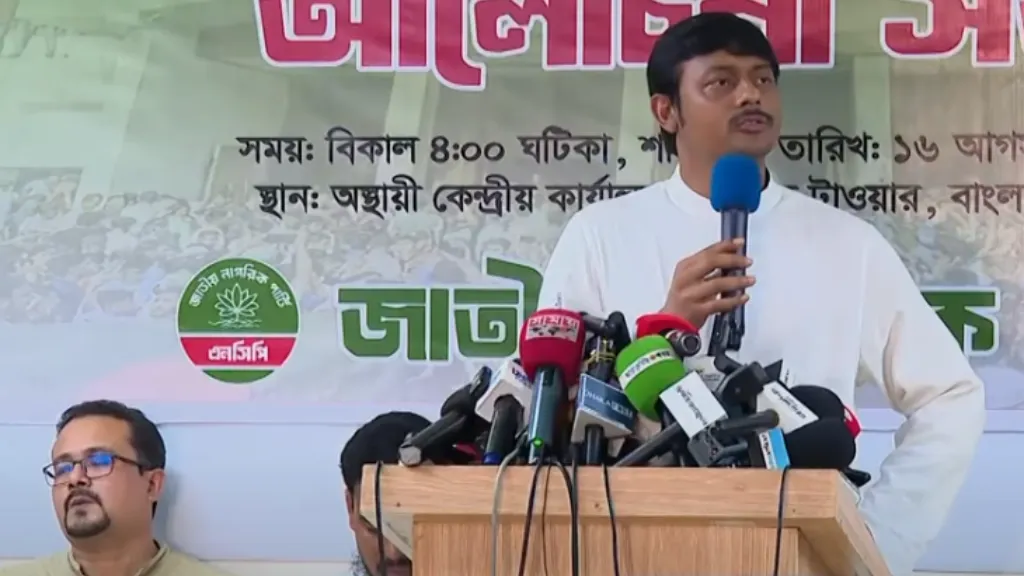Nasiruddin Patwary, chief organizer of the National Citizen Party (NCP), has said Bangladesh must hold a Constituent Assembly election if it is to overcome its ongoing political crisis.
Speaking at an NCP discussion in Banglamotor on Saturday afternoon, Patwary argued that the country needs a new constitution written through public consultation and a Constituent Assembly. Without that, he warned, Bangladesh would continue to face recurring instability.
“If any election is to be held in Bangladesh, it must first be a Constituent Assembly election,” Patwary told party members and journalists. He described the NCP’s central goal as building a “new Bangladesh” through constitutional reform.
Patwary linked his proposal to broader public sentiment, particularly the frustration of families who lost relatives in recent political uprisings. He questioned whether their sacrifices were being honored.
Patwary likewise referenced the reforms delineated in the “July Charter” and contended that their complete implementation necessitates a comprehensive redrafting of the constitution.
In furtherance of this argument, he invoked the precedents of Nepal and Tunisia, which, he noted, conducted several Constituent Assembly elections prior to finalizing their constitutional documents. Throughout his address, he reproached the variable stances exhibited by the principal political actors in Bangladesh.
He accused them of moving election demands from month to month without clear direction. “Bangladesh has never truly experienced multi-party democracy,” he said, referring to the political breakdowns that have marked the country’s history.
The NCP leader went further, targeting Chief Adviser Muhammad Yunus for seeking “guidance” abroad rather than from Bangladeshis, and accusing some July Charter participants of meeting secretly in London clubs. He suggested they were ignoring the will of the people.
Patwary further questioned the constitutional legitimacy of the incumbent political authority, contending that the regime risks grave constitutional dislocation absent prompt orientation toward a cohesive new constitutional synthesis, as mandated by Article 106 of the national charter.
His assertions additionally implicated the armed forces and the national intelligence apparatus, which he charged with excessive power deployment and a persistent miscomprehension of expressly constitutional norms of civility and restraint.
He described the existing constitution as a “fascist structure” designed by the Awami League and Sheikh Mujibur Rahman to consolidate power.
The NCP, he said, intends to abolish that system and reject any deals that hand over Bangladesh’s natural resources to foreign powers. He pointed to the formation of a Citizen Committee with eight tasks, including organizing public dialogue and pushing for a Constituent Assembly.
“Sixty percent of Bangladeshis desire reform,” Patwary said, urging journalists, business leaders, and what he called patriotic forces to support the movement.
Patwary ended with a personal pledge, saying he would step away from public life if proven guilty of corruption. He insisted the NCP would not compromise on matters affecting the Bangladeshi people.









